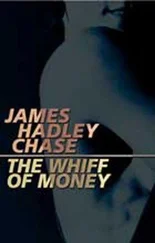Step 1: you must hit rock bottom
You must, must, musssttt decide and agree with yourself (and maybe your partner, if you have one) that from here on in there will be no more consumer debt in your life. You need to be resolute. Starting to get out of debt will be close to impossible if the debt is continuing to grow or if you go for a couple of weeks or months and then you're back at the checkout with your plastic or buy-now-pay-later app, ready to throw it around like in a terrible 1990s comedy movie.
The reason you must first decide that enough is enough is because it's honestly a waste of time and energy if you start trying to get out of debt and when the next flashy item appears you're straight back to using debt to make a purchase. That's because you're not disgusted enough with yourself yet (hehehe, I'm remembering myself before I was done with consumer debt!).
I like to think about mindset and philosophical things when it comes to consumerism. In Australia, we have it pretty good — it's not as crazy as the USA, which has a hyperconsumerism-motivated society (though I think this is slowly changing). I once saw an average house in mid-west suburbia (Columbus, Ohio) where a guy was riding his ride-on mower in the front yard — most likely purchased on finance. It's probably rare to see someone in Australia riding a lawnmower in suburbia — although my dad purchased one because he got it ‘cheap’. Okay, Dad. At least he paid cash (and went halves with a neighbour — ha)!
Many people in the world (approximately 9.6 per cent of the world’s population) live on under US$2 per day. I sourced this figure from a book by Peter Singer called The Life You Can Save . Now, compared to the poverty and limited means that the majority of the world's population relies on daily, looking at the consumerism machine that our privileged, Western society celebrates makes me think that enough is enough. I want out. I need out. I think about how the rest of the world lives and compare the fact that I have borrowed money, paid for the pleasure to borrow it (interest) and then consumed an item of luxury — and I feel ashamed of myself and our society.
You need to reach a point where you decide that debt is negative, self-limiting and that it should have no place in your life from now on. There is no point starting to get out of debt unless you are aware of the fact that debt is a terrible thing that has not really brought you any blessings this far.
It is perhaps more important now than ever before to be resolute in your philosophy around consumer debt because technology has advanced to the point where we can enter into debt more quickly and easily than ever — just one click on ‘install app’ and the cycle restarts. Conversely, it has never been so easy to invest for the future and manage your money with the use of technology.
If you are truly not at a point where you are serious about stopping your debt cycle, I suggest you stop reading now and get on with your day. Don't waste your time reading this book (hehehe).
Everything we do in personal finance and building wealth is based on the fundamental principles of spending less than we earn, having a good cashflow system and investing for the future.
The reason I harp on about the importance of making a personal resolution to no longer have debt is because I have seen too many people put so much energy into paying off their debt, then enjoying a couple of months without debt and loving life, and then running back into debt with ‘all the extra money they have’. It's just not worth the huge effort in trying to clean up your act if you are only going to relapse.
I hope that by the end of this chapter you'll be ready to cut up the credit cards, close the loan accounts and delete the buy-now-pay-later apps.
If and when you reach the point in your life where you are ready to say goodbye to debt, keep yourself accountable and share the resolution by filming yourself cutting up the cards (or do a screen record of yourself deleting those apps) and tag me on Instagram! @mymillennialmoney
Step 2: get your money system in place
For as long as I can remember (probably since I was 16 years old) I have read and listened to personal finance resources and motivational speakers from all around the world. Personal finance speakers often use the analogy of ‘You Incorporated’ as a way to get people to step back and see themselves as a company or corporate entity with ‘you’ being the boss. If this is a new concept to you, effectively you are the CEO of ‘You Inc.’. Would you expect a company that has a good, stable income and expenses to have zero systems in place to manage its cash flow? Of course not, so that's why you must have a cashflow system in place for yourself.
Since you have decided that you are done with debt and never looking back, your focus should now shift to setting up a good cashflow management system. Your cashflow system should be automated and remove you from the process as much as possible.
While you are doing this, I would suggest that you place all your consumer debts on minimum monthly repayments only and forget about them for the next few pay cycles as we need to get some good habits and behaviours flowing around spending and managing your money.
I want you to not worry about doing a million things at once. I want you to trust me and try my way — with respect, your way of handling money has not worked so far if you are currently stuck in consumer debt.
So you are paying only minimum payments on your consumer debt and focusing only on setting up your cashflow system (see ‘Setting up your spending plan’ in chapter 4). I want you to not only see the light at the end of the tunnel, but also to feel it! You see, if you conducted a financial autopsy on the average person's consumer debt, you would probably find that there is a car loan, a credit card that they can't shake or a buy-now-pay-later (BNPL) program that goes round and round and maybe even a personal loan from something another life ago. Generally, personal loans and credit card debt mean that there is no financial asset linked to them and the debt/money has been spent at the discretion of the purchaser. Lending money which is not secured against an asset is risky business because there is no guarantee that the lender can recoup the loan amount should the borrower fail to repay it (also known as ‘defaulting’). In turn, this is why credit cards generally have higher interest rates: the bank can't rock up and sell the nice holiday that you enjoyed or the shopping trips you went on to recoup their money and pay off the debt. Most consumer debt (such as credit cards, cars, personal loans and BNPL) is not usually from one big item purchase (with the exception of a car purchase, which decreases in value anyway) but rather lots of different things here and there without any real system in place to manage money.
In short, you may have suffered a death by a thousand cuts and you have been systematically overspending. Don't you just love consumerism?
If you are in this situation, I want you to pretend that the new CEO of You Inc. has a mess on their hands. The business needs to run as usual, which is why you can't simply stop paying rent, mortgage or grocery bills to throw 100 per cent of the available money onto the debt — if you do, the business will stop functioning. The first thing the new CEO must do is put a working system in place, even if this means that the balance sheet (the financial statement of a company — in this case, You Inc.) has some debt that needs to be cleared. It takes time to fix a mess. It's understandable that it will take at least a few pay cycles for the new strategy to be installed and to take effect.
Think about this: you're on a boat and there's a slow leak. What's more important? To start bailing water out because you're worried that your feet might get wet or to stop the leak? If you spend time stopping the leak and fixing what caused it, it's okay to have a bit of water on your feet. I understand that some of you might be up to your neck in water, but it's still more important to stop the leak and put a system in place to ensure the cause of the leak can never happen again.
Читать дальше












